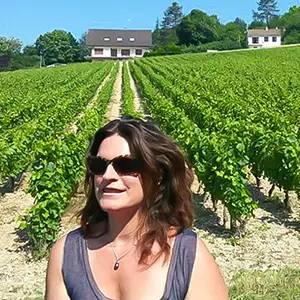We are in a place where wine, nature, and quiet elegance intersect, where luxury has another definition and awaits discovery. Arcadia Vineyards and Bakucha Vineyard Hotel & SPA, established in the ancient wine lands of Thrace, just 1.5 hours from Istanbul Airport, do not merely offer this new understanding of luxury; they live and embody it. On the “Wine Route” that has historically extended to France and Italy, Arcadia combines thousands of years of production knowledge with modern oenology, establishing an ecosystem that sows its own seeds, works with local producers, and respects the soil. Every wine, every dish, every walking path produced here is an expression of a strong connection with nature, culture, and time. We listen together to this unique story as told by its founder, Zeynep Arca Şallıel.
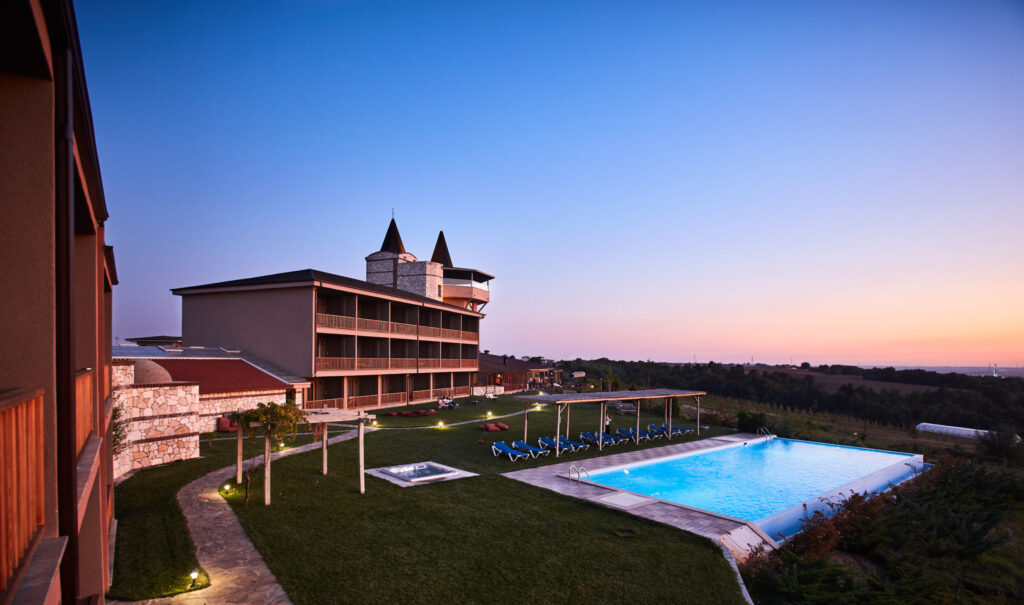
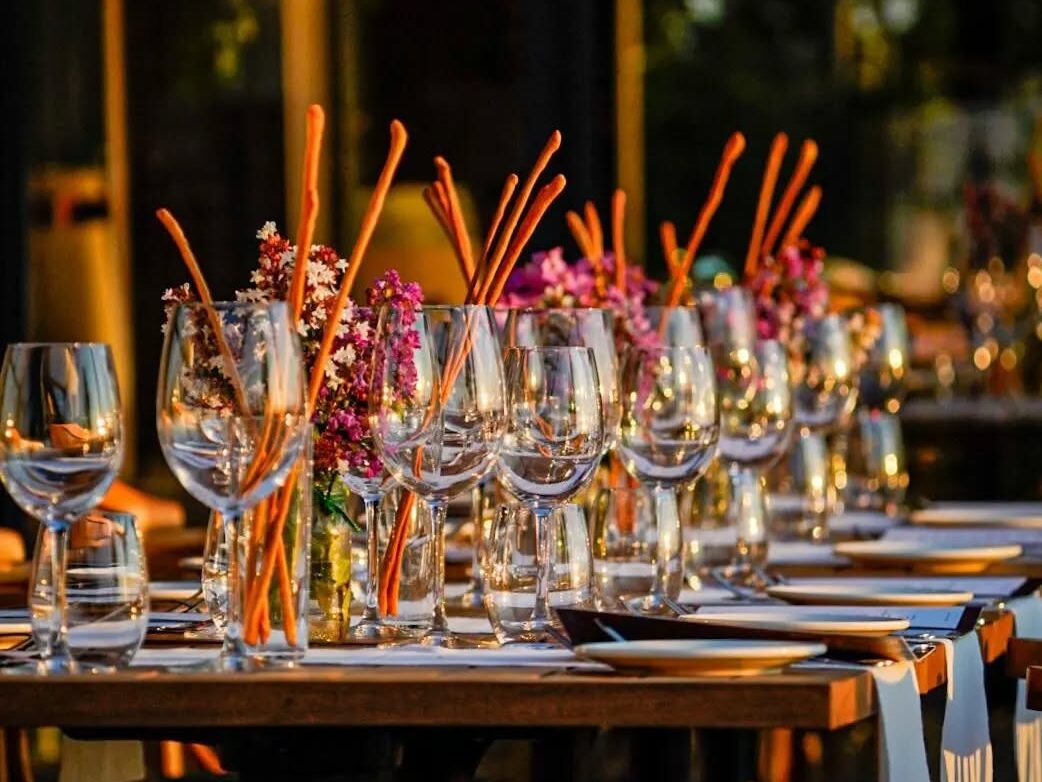
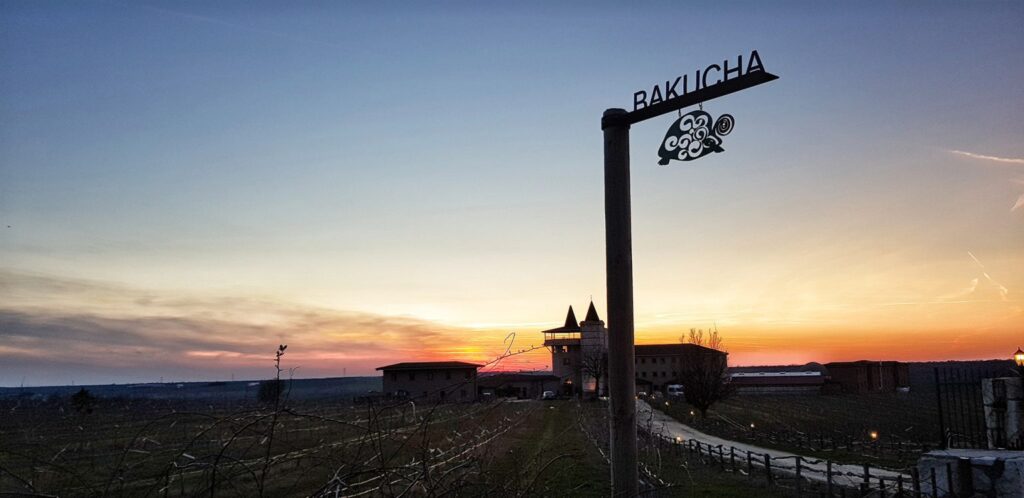
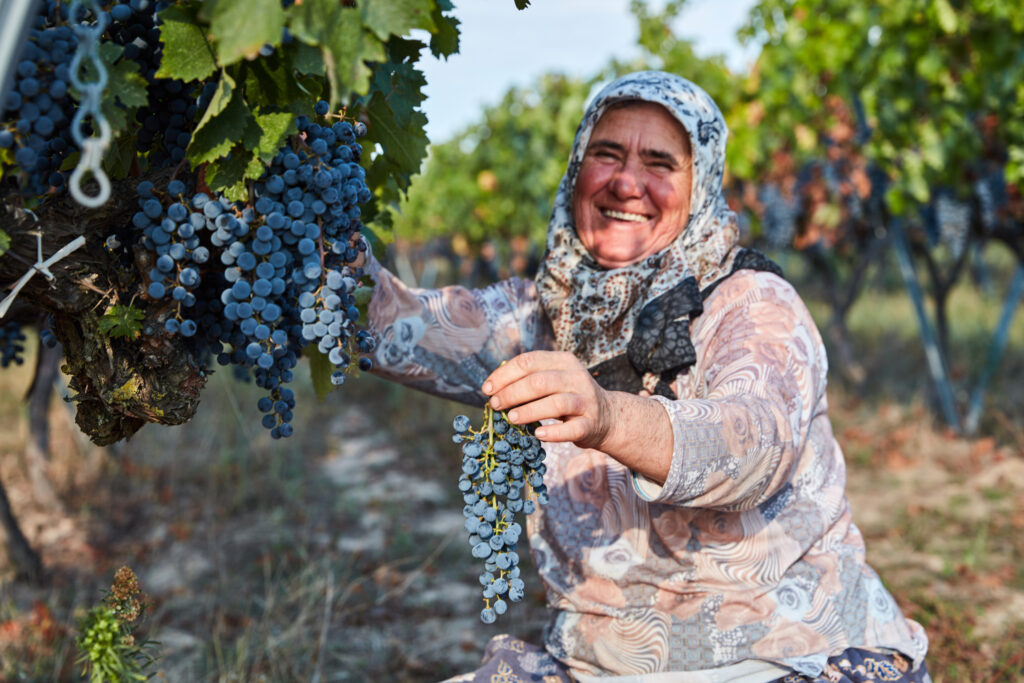
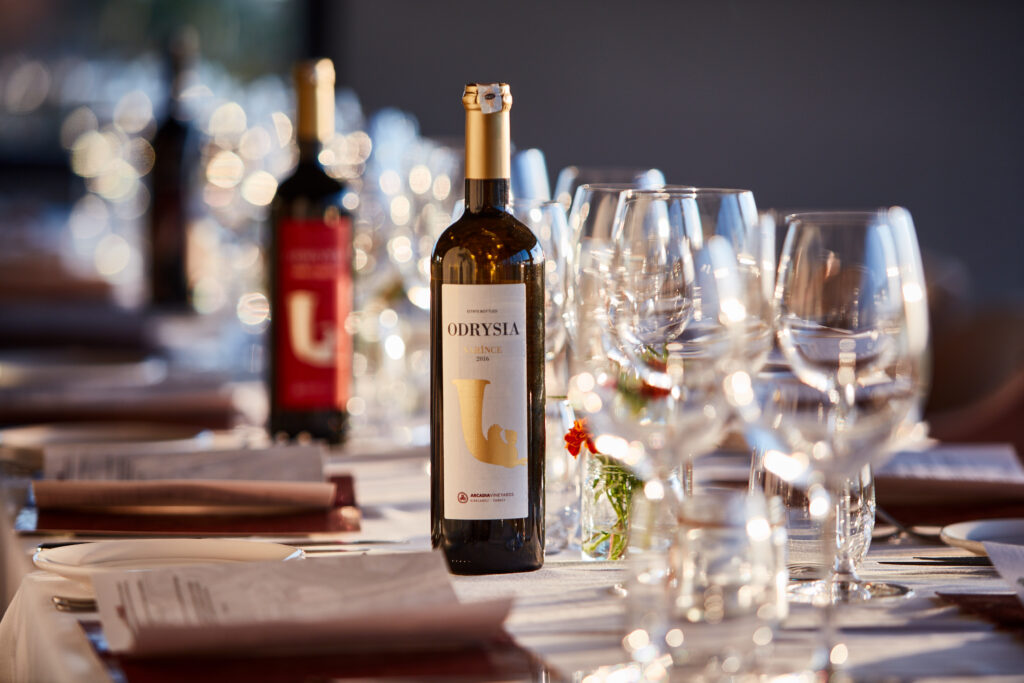
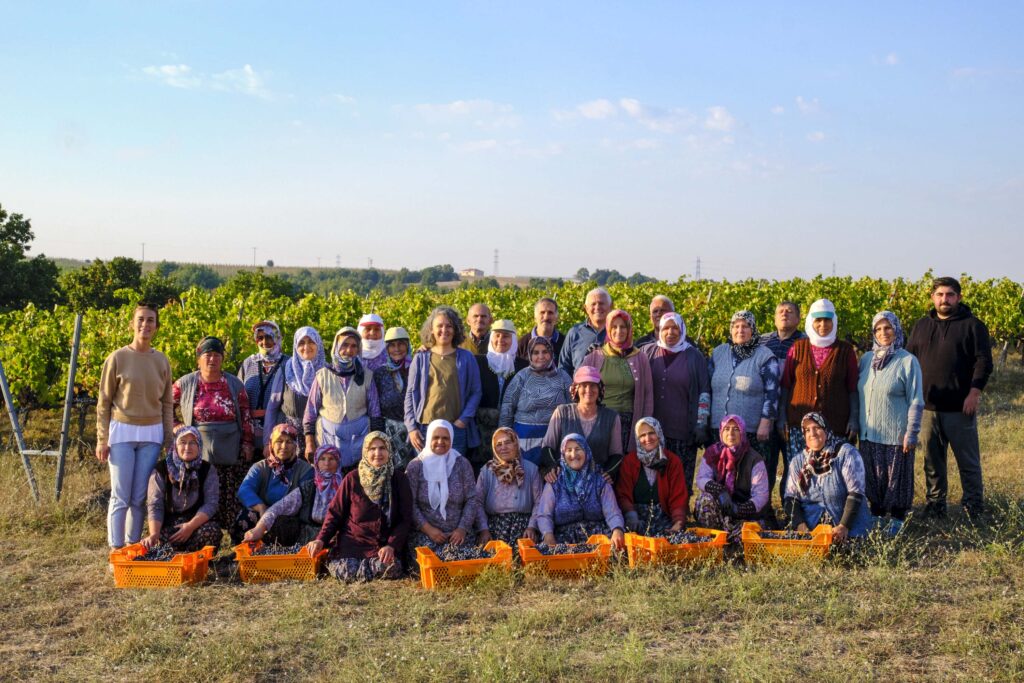
The Chosen Land: Terroir and History
1. What compelled you to establish Arcadia? What personal journey lies behind this vision?
The foundation of Arcadia was laid at the intersection of a passion for wine, a love for nature, and a quest for sustainable living. My interest in this field began during a wine tasting initiation I attended while studying at university in France. At the same time, I grew up in a family that valued gastronomy; I had the chance to experience different world cuisines at an early age. During my university years, wine met with passion, and my interest in topics like ecological balance and the climate crisis deepened. These areas, which initially seemed separate, eventually merged. While working for ten years, ecological agriculture, heirloom seeds, and the need for contact with nature became central to my life.
My family was in tourism and hospitality; my father and I often talked about nature and wine. While questioning why more quality wine wasn’t being produced in Turkey, we realized that regulations had changed, opening up space for small producers. We said, “Maybe we should do it.” Thus, Arcadia emerged not just as a wine project, but as a holistic lifestyle project based on gastronomy and sustainability.
2. Kırklareli is one of the most fertile regions for viticulture in Turkey. But was it only this fertility that drew you to these lands?
The main factor was the terroir itself, rather than just fertility. Our goal was to produce natural, elegant, high-acidity wines that reflected the terroir character. That’s why we researched cool climate regions. With the guidance of my professor in France, Prof. Alain Carbonneau, one of the founders of Montpellier SupAgro and a world-renowned grape adaptation expert, we decided on Thrace, specifically the Lüleburgaz-Kırklareli line. The soil structure was extraordinary: the coolness of the Black Sea, the protective effect of the Istranca Mountains, high temperature differences, and multi-layered alluvial soils. With a scientific approach, we traveled 1500 km, collected hundreds of samples, and parceled our land. After approximately 1.5 years of preparation, we established our vineyards.
Then, as we learned about the history of this region, our excitement grew: Kırklareli had been an important wine production center for over 1500 years since the Thracian period. However, production almost completely ceased due to wars, population exchanges, and the Teşkilat-ı Mahsusa period. We found the opportunity to revive this ancient tradition by discovering it with scientific data. Being the first modern winery established in the region during the Republic period is both meaningful and a great responsibility for us.
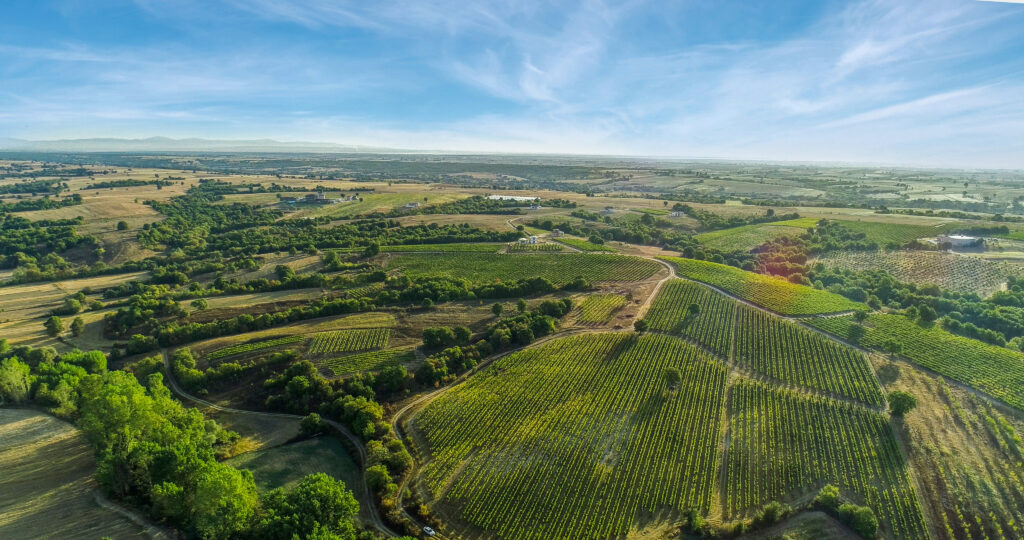
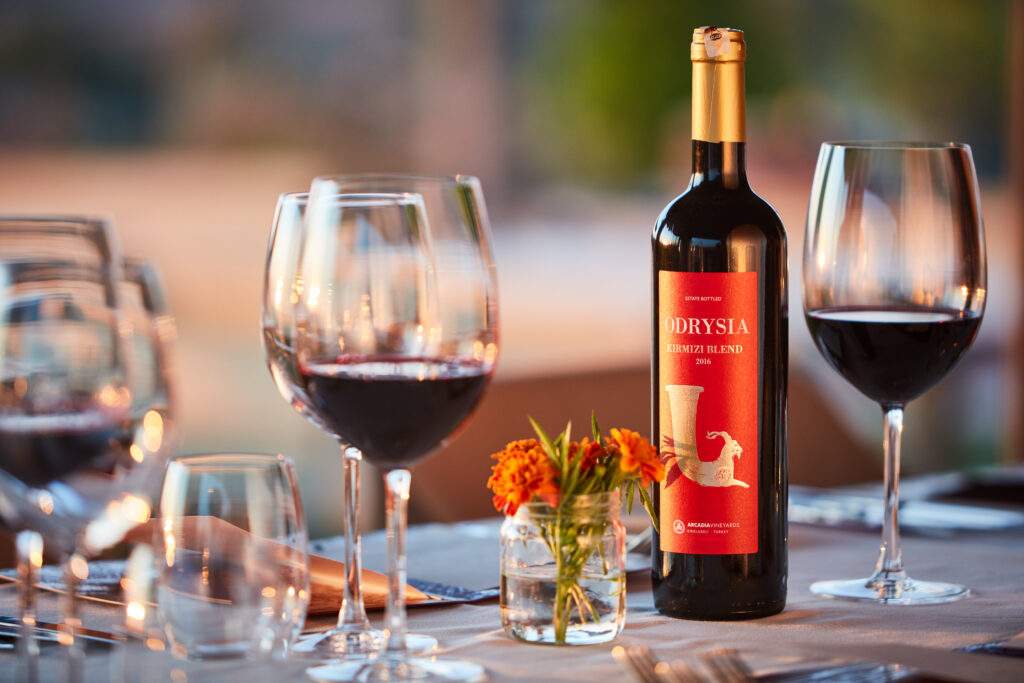
3. What is the historical significance of winemaking in Turkish lands? How do you assess this potential?
These lands are one of the oldest centers of wine production. Wine production dates back 8,000 years in Mesopotamia, and according to some estimates, even 11-12 thousand years. Genetic and archaeological research shows that Vitis vinifera, or wine grapes, were first domesticated in the Fertile Crescent, which includes Turkey. For thousands of years, wine here was not just a drink but a cultural and survival tool. Grape seeds have been found in 8,500-year-old settlements like Aşağıpınar Höyüğü. This mound is only 20 minutes away from our vineyards.
Hittite tablets included wine in medicinal recipes; serious viticulture was carried out on the Kadıköy side during the Ottoman period; and even during the phylloxera crisis in France, grapes were exported from the Ottoman Empire. Unfortunately, due to interruptions like wars, population exchange, and the Tekel system, this tradition was largely forgotten. In contrast, in France and Italy, wine culture continued uninterrupted and deepened with modern science. Our goal is to bring these two worlds together: to combine Turkey’s ancient terroir knowledge with the West’s technical expertise. The potential of these lands lies not only in their natural richness but also in the will to revive their history.
A Philosophy of Living: Beyond Winemaking
4. How did you choose the names “Arcadia” and “Bakucha”? Do these names have a special meaning for you?
When choosing the names Arcadia and Bakucha, we considered not only aesthetics but also historical and cultural contexts. This place was known as “Arkadapolis” during the Eastern Roman period; meaning the city founded by Emperor Arcadius. We chose Arcadia in reference to this ancient name. At the same time, in mythology, Arcadia means the garden of paradise on earth. This meaning suited very well the ecological structure we established, which operates as a closed system in harmony with nature, extending from vineyards to gastronomy as a sustainable ecosystem. Our respect for the ancient past of Thrace also had a great impact on our choice of Arcadia as a name. This place has been one of the main migration routes from east to west throughout human history. We wanted to honor the heritage of this land in both our products and our names.
Bakucha, on the other hand, is a more personal and at the same time multilayered name. When my daughter was little, she would call turtles “bacuca”; that innocent word, over time, became associated with slowness, tranquility, and the desire to live in harmony with nature for us. In this sense, the turtle represents our philosophy here very well. At the same time, we combined Bacchus – the Latin name for Dionysus, the god of wine – and “kuća,” a word meaning “mansion” in Balkan languages. Thus, we created the name “Bakucha,” meaning “Bacchus’s mansion.” It became a special word for us, combining a personal story, a mythological reference, and a geographical root.
5. Your portfolio also includes rare grape varieties. What criteria do you prioritize when making these selections?
Our most fundamental criterion is the grape’s harmony with the terroir. Our land has a very heterogeneous structure; we took thousands of soil samples for detailed analysis and matched each parcel to the most suitable grape. In the selection process, we considered both the varieties that would yield the best results from the terroir and the wine styles we wanted to produce.
Working with local varieties is very valuable to us; we propagate types like Papaskarası and Narince using our own methods, and we experiment with different styles with these grapes, such as Méthode Champenoise sparkling wines, naturally fermented reds, and even Blanc de Noir. However, for many local grapes in Turkey, there is still a need for sufficient scientific infrastructure and clone selection.
The reason we turned to international varieties was both that these varieties have been cultivated in these lands for centuries and that we could more easily access reliable clone study data. For example, Cabernet Franc yielded extraordinary results in our vineyards, and we produced the first wine in Turkey where this variety was bottled alone. Today, Thrace has become a prominent region for this grape. Consequently, we evaluate local and international varieties together. Our goal is to both glorify the heritage of these lands and create wine styles that can compete globally.
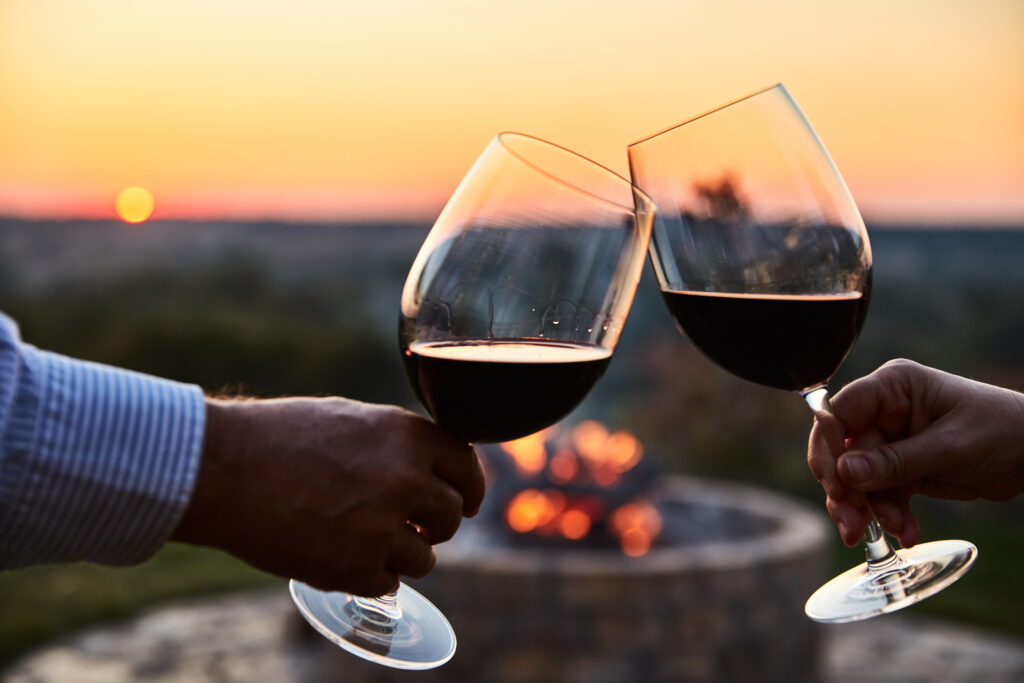
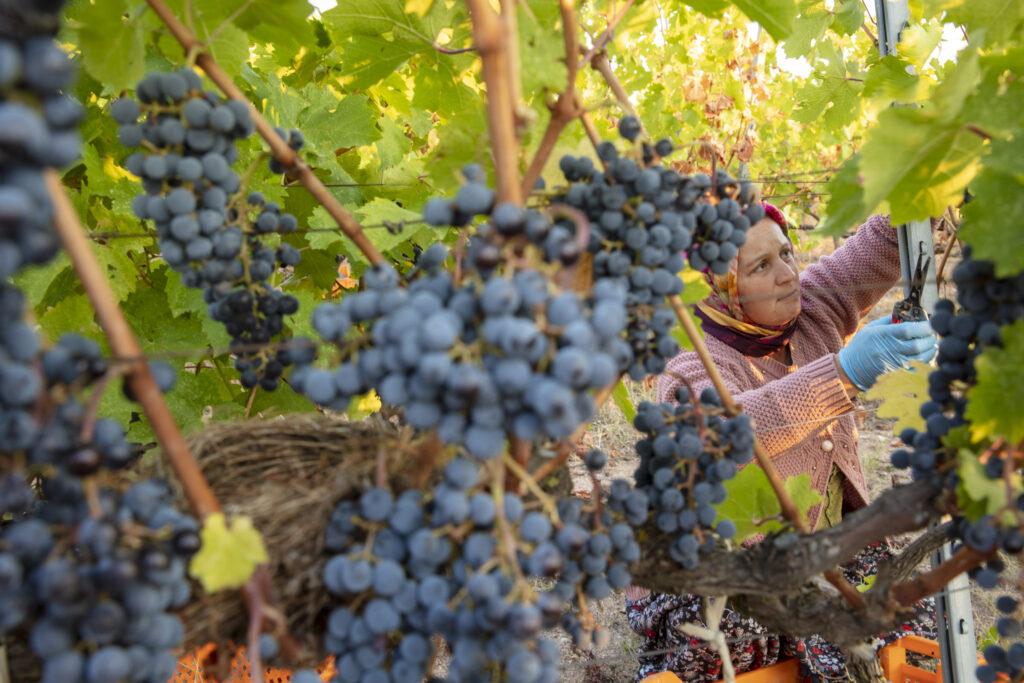
6. Is the “low intervention” approach merely a technical preference for you, or is it part of a broader life philosophy?
It’s definitely a life philosophy. As an urban person, I was alienated from nature, but the anxiety I felt about the climate crisis prompted me to change direction. Wine production acted as a bridge between the city and the countryside. We designed Arcadia not just as a winery, but as an ecosystem in harmony with nature; we built the entire structure, from agriculture to tourism, upon this vision.
For us, it’s not just about “sustaining” but about “improving.” That’s why we now embrace the concepts of “regenerative agriculture” and “agroecology.” In every step of production, from the energy you use to waste management, from building materials to preserving cultural heritage, this perspective needs to be considered. For example, the stones we use in the hotel come from the Istranca Mountains. These stones contain millions of years old seashell fossils — we wanted to bring the time layers of where we live into life.
We are also seeing concrete results. Thanks to agriculture that has been practiced without pesticides for 20 years, we recently launched a nature observation project and identified over 100 bird species in the area; 10 of these were endangered species. 6 of the photographed mammals are also endangered species. For example, the ground squirrel species, which is facing extinction due to habitat loss, is as common in our vineyards here as cats in Istanbul. We are learning to live together with nature, not against it. “Low intervention” for us, is a fundamental principle of a more honest, sensitive, and responsible life.
7. How does the gastronomic chain of Bakucha cuisine operate? Is it truly local and based on your own production?
Yes, currently over 50% of the products we use come directly from our own vineyards and fields. The rest we source from reliable farmers in the region and local producers’ markets. We don’t need to produce everything ourselves; our aim is also to support local producers who engage in ethical and clean production.
We adhere to sustainability principles in our sourcing. Approximately 90% of our products come from within a 400-kilometer radius. In exceptional cases – such as Konya moldy cheese – we go outside this circle, but even then, the method of production and the producer’s intention are decisive. In addition to classic flavors that remain constant, our menus are updated seasonally. The sourdough breads, pastas, and pastries served at the hotel are made from heirloom wheat grown with natural farming methods and ground in a stone mill, while all jams and sauces are homemade. Special regional products like summer truffles and porcini mushrooms are harvested in season, processed, stored, and used throughout the year. In short, Bakucha cuisine is a reflection not only of our own land but also of the surrounding ecosystem.
8. Do you think it’s possible to connect with a region or the past through food? How is this reflected in your cuisine?
Absolutely. Gastronomy is not just nourishment; it’s a form of cultural expression. The cuisine of every geography reflects the climate, history, and way of life of that region. That’s why food is one of the most powerful ways to connect with a place and its past. In our kitchen, we both create unique recipes inspired by local products and preserve dishes that bear the traces of the past. For example, recipes like “Mutancana” from the Edirne Palace, the Pomak dish “Loznik,” or “Plaska” are on our menu. Sometimes we preserve the traditional, sometimes we adapt it to today’s palate.
Kırklareli has a multicultural past. Making the culinary traces of Armenian, Jewish, Bosniak, and Pomak communities visible is a responsibility for us. We adopt the same approach in production: we grow lavender in the vineyards, thereby both protecting biodiversity and producing products like lavender honey and soap – in collaboration with local women producers. Going beyond food, we also reflect this spirit in our space design. For example, the ceramic plates used in the hotel were produced inspired by archaeological patterns from Aşağıpınar. We want our guests to take not only a taste but also the spirit of this place with them. Food for us is a way of connecting: with the land, with the past, with neighbors, and with guests.
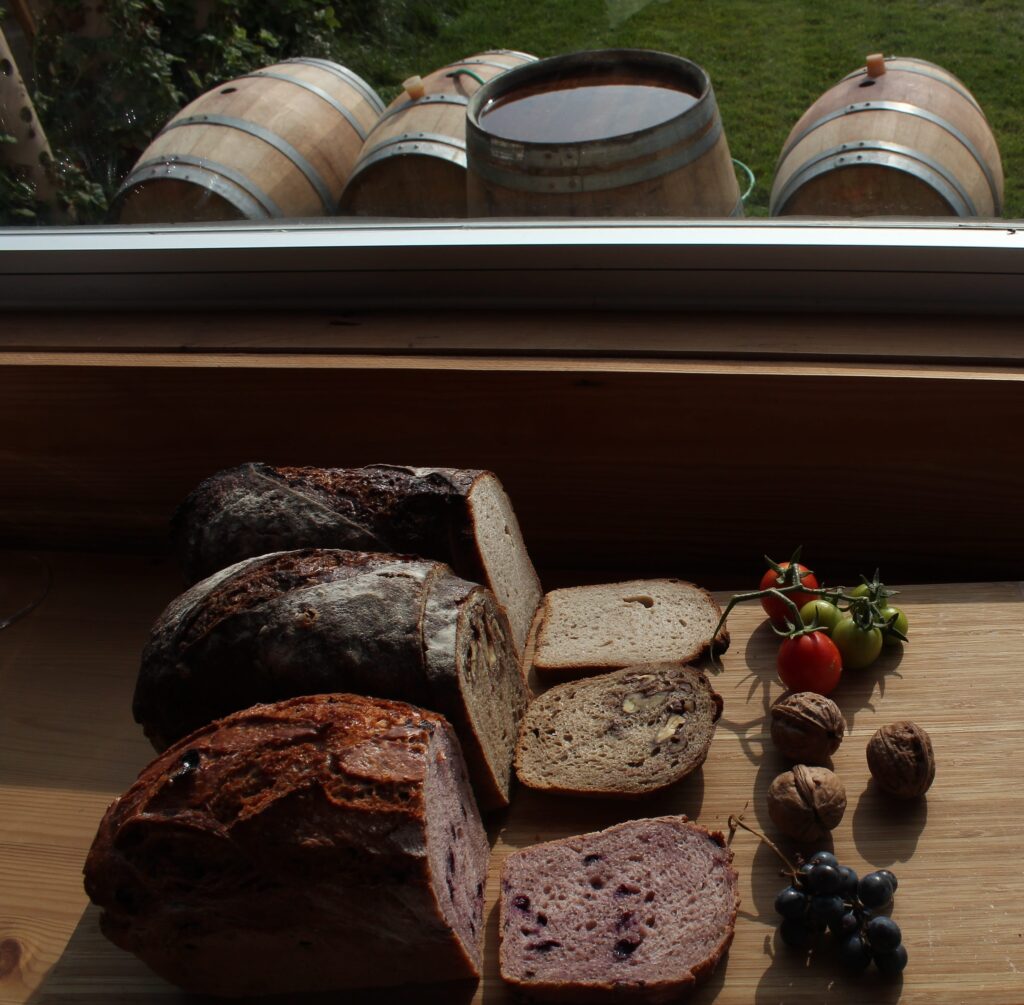
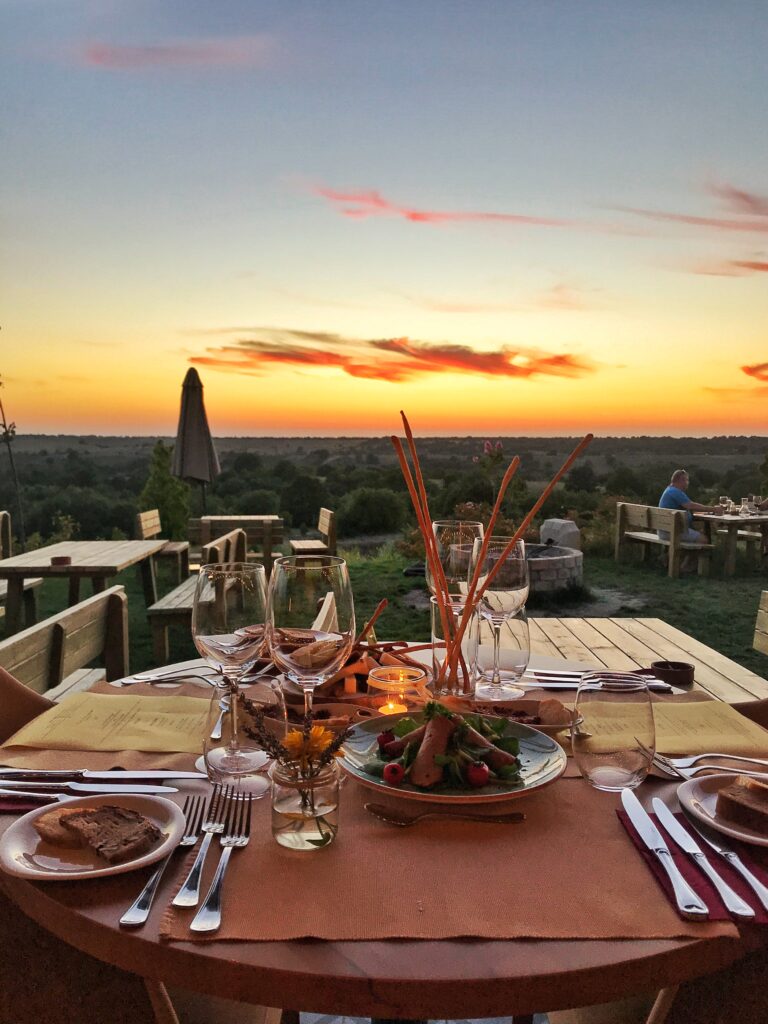
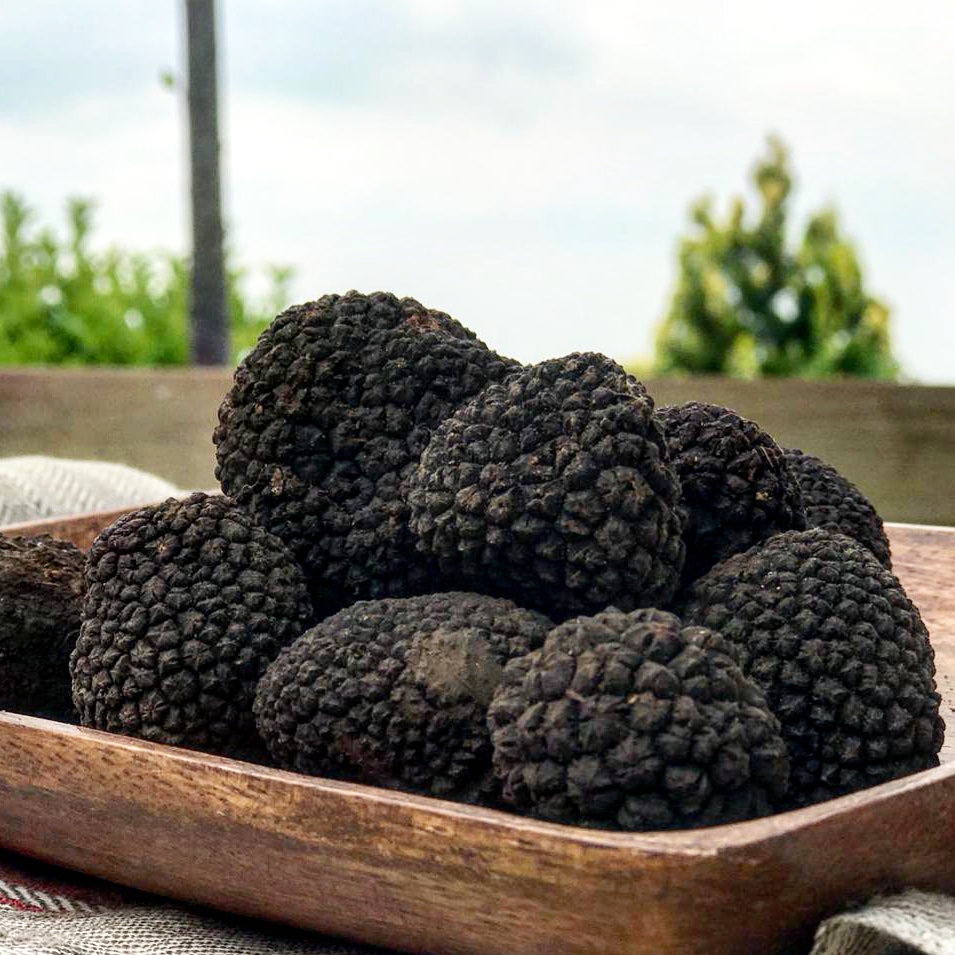
Community, Connection, and The New Luxury
9. Arcadia and Bakucha have transformed into a community, not just a vineyard and hotel. What does this local connection mean to you?
Arcadia is an expression of a three-pronged philosophy of life: production, tourism, and community. First, this is an agricultural area. In addition to wine, we also grow agro-ecological products such as lavender, fruits, vegetables, and heirloom wheat. We use our own wheat in pastries; this way, we move away from monoculture and support soil health.
The second element is agrotourism. We want to offer guests who come here not just good food, but an experience where they can reconnect with nature. In spring, they can walk among fields of endemic orchids while touring the vineyards. Chemical-free production improves not only product quality but also the entire ecosystem. The third and most special dimension is community. Arcadia has now become a sustainable village located in the middle of Hamitabat and surrounding villages, where people who want to live in harmony with nature come together. We share seeds, support production, and grow together with people who have similar concerns. It is hopeful that the number of producers with this vision is increasing in Thrace.
When we started, we asked ourselves a question: What is true luxury? For us, luxury is silence, clean air, a sky free of light pollution, chemical-free food, and a compassionate connection with nature. It does not conflict with good food, music, or comfort; on the contrary, it gains meaning together. Today, while walking amidst the scent of lavender or listening to a jazz concert here, we are experiencing a new definition of luxury. It makes us happy that this way of life affects more people. And this change is possible at any age, with small steps.
10. What historical and cultural destinations would you recommend to visitors?
There definitely are. First, Aşağıpınar Höyüğü stands out. Located 10 minutes from Kırklareli city center, this 8,500-year-old settlement is the oldest agricultural community discovered on the European continent to date and an important transition point for the spread of agriculture from Anatolia to Europe. Today, it is organized as an open-air museum and is still being scientifically developed. Edirne, about 45 minutes away, is an extraordinary historical treasure as the former capital of the Ottoman Empire before Istanbul. Mimar Sinan’s masterpiece, the Selimiye Mosque, Europe’s second-largest synagogue, 16th-century külliyes (complexes), and the Health Museum, which reflects the advanced medical understanding of the period, are must-sees.
For nature lovers, the Istranca Forests offer a route full of hiking trails, waterfalls, and endemic plants. Also, just 10 minutes from the Dereköy border gate, on the Bulgarian side, there is an old Ottoman village. With its stone mansions, fountains, and calm nature, it still feels undiscovered. The Kırklareli city museum is small but impressive; archaeological pieces unearthed from Aşağıpınar and artifacts from the Roman-Byzantine period are exhibited there. As Arcadia, we try to contribute to the untold story of this region. Everyone writes their own paragraph; ours is a small but meaningful part of this ancient text.
11. You are in a place only a few hours away from Istanbul, yet it feels like a completely different world. How do you think this proximity affects the spirit of the place?
Being so close to a high-energy but exhausting metropolis like Istanbul makes the concept of “new luxury” much more meaningful here. The need to connect with nature, calm down, and breathe is inevitable, especially for urban people. Arcadia is only 1.5 hours from Istanbul Airport. This makes it an ideal transit point for international visitors and a special stop for those who want to rest for a few days after Istanbul.
Visitors here enjoy wine tasting, spend time alone with nature, and savor simply “being” without doing anything. Many choose this as the final destination of their trip and go directly to the airport. In our future vision, there is a cross-border Thracian route, encompassing Edirne, Greece, and Bulgaria, but woven with a similar philosophy. We have already established connections with ecological producers in Bulgaria in this regard. However, Arcadia offers more than just tranquility. In the summer months, we organize open-air cinema screenings and jazz concerts with the French Cultural Institute. The spirit of this place is determined by the balance of peace with nature and cultural vibrancy.
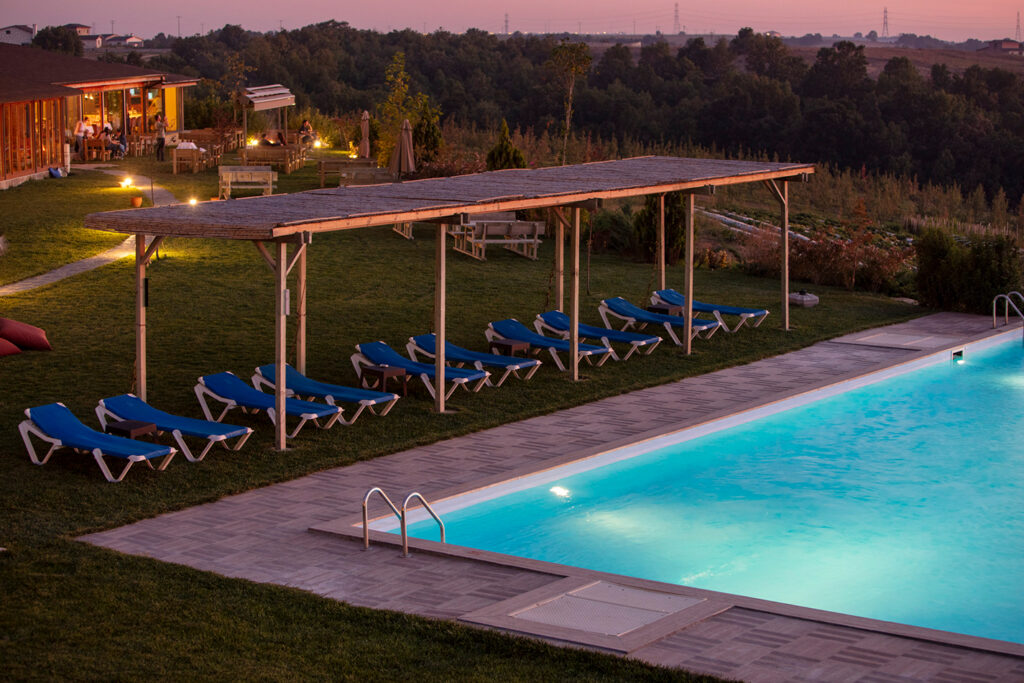
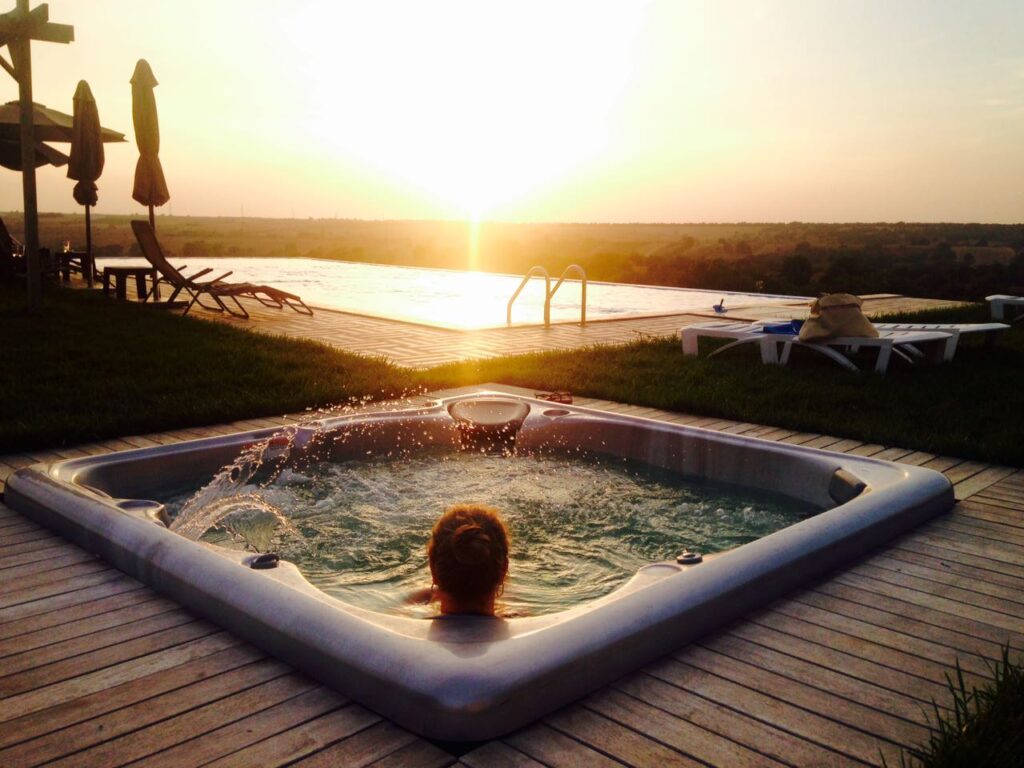
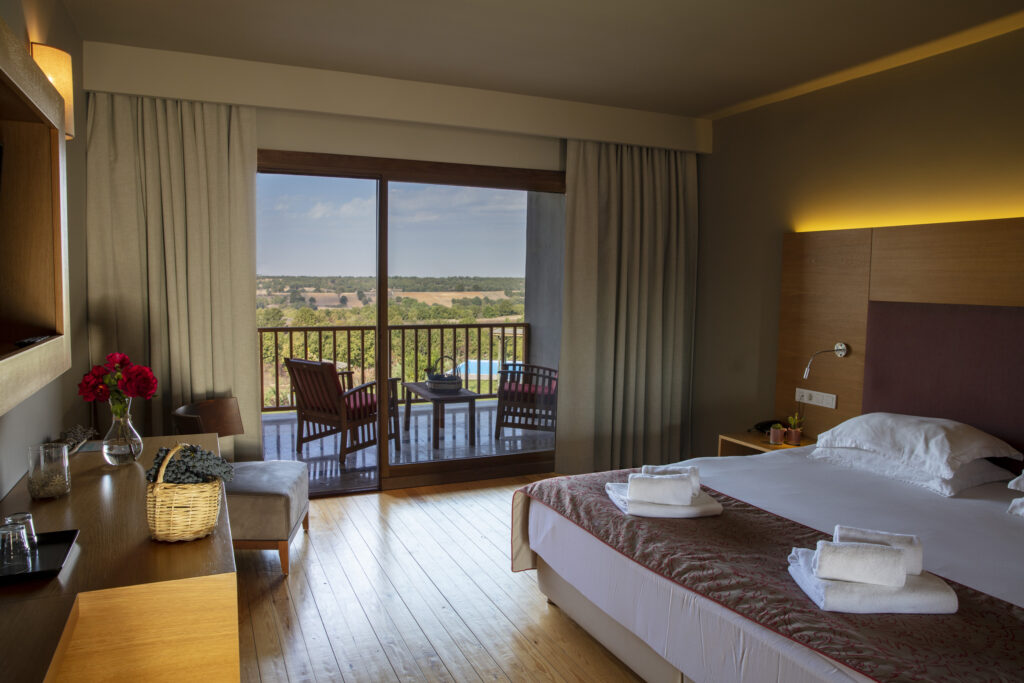
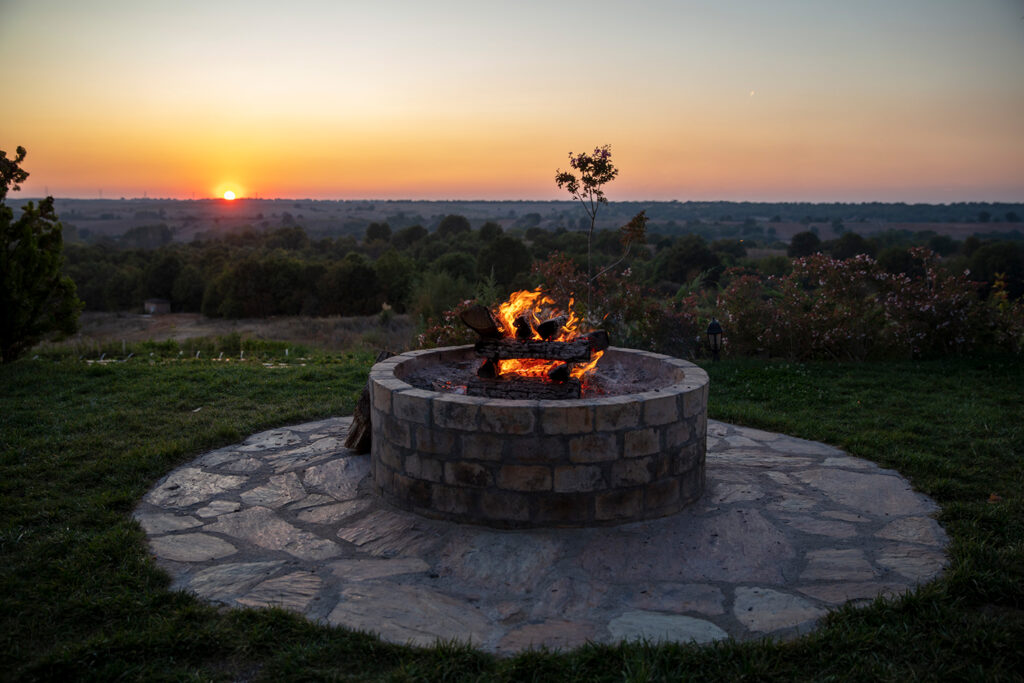
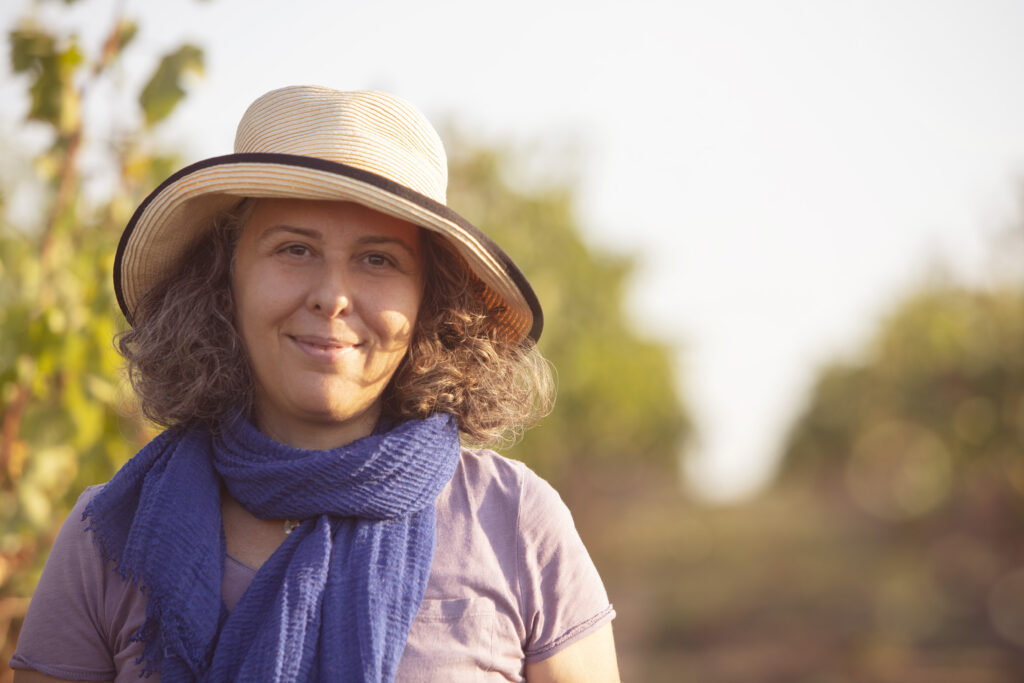
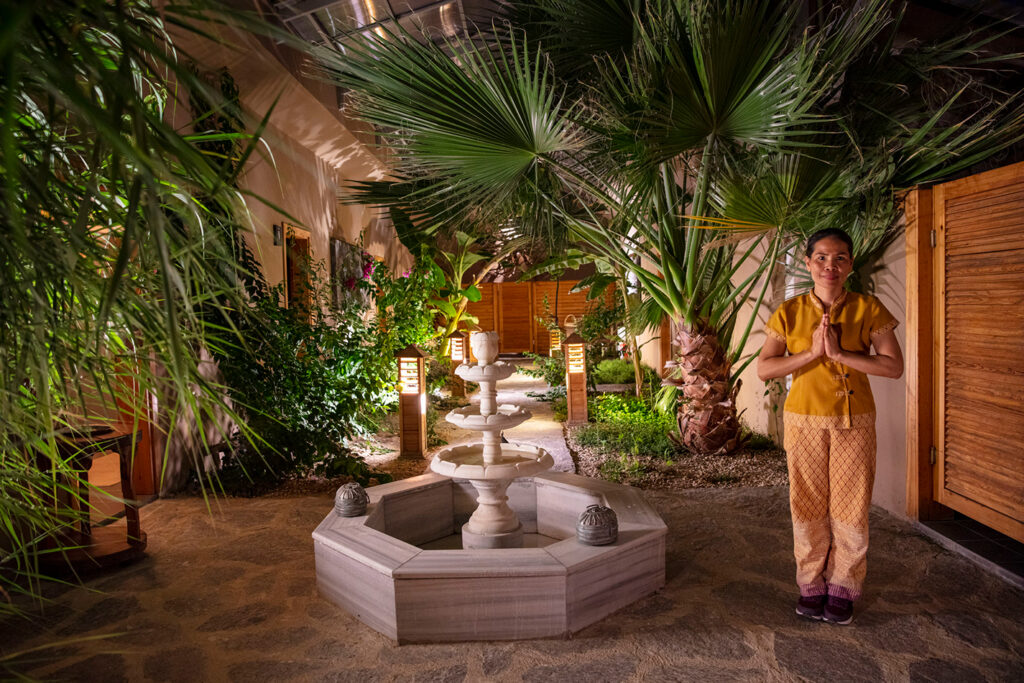
Final word
Arcadia and Bakucha are not just a vineyard or a hotel, but a way of life in harmony with nature, gracefully bringing what the land offers to the table. Here, real, seasonal products from their own gardens meet balanced and refined wines suited to the terroir. During the day, you can relax under the sun, pamper your body with massages performed by trained therapists; in the evenings, you can slow down the rhythm of time at barbecue tables or jazz concerts. If you wish, you can explore the surrounding ancient settlements, forests, and architectural heritage. All of this is presented with an understated yet sensory elegance. At Arcadia, luxury begins with living; taste begins with listening to the land. And now, this unique world awaits your discovery.


